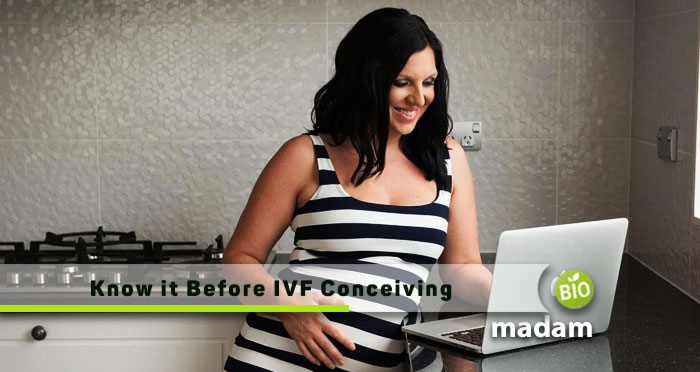Recently updated on January 31st, 2024 at 06:47 am
Nowadays, it has become possible for many women to conceive and have a baby. Infertility has always been one of the biggest problems that stand between women and conceiving but as science advances, various solutions have been discovered like IVF.
Whether it is their careers or finding the right partner, many women choose to have children in their thirties or even forties. However, as women age, their egg count and fertility decline, which is why they may consider IVF treatment. Although more and more couples are now using IVF, there are still people who are concerned that it is an unnatural process or that their child may not be healthy. However, these can’t be further from the truth. You can have a normal and healthy child but there are important things you need to know first.
1. IVF Takes Time
You need to know that IVF takes time. Depending on your body’s immunity and the response to medications, it is going to take you about a month or two to complete an IVF course. During this time, your menstrual cycle will need to be suppressed. Your doctor will recommend the best method which is either taking hormonal birth control, hormone injections that must be administered every day, or utilizing a nasal spray. This process usually takes two weeks.

You will then begin ovarian stimulation which is done by taking one to three self-administered shots every day for about eight to twelve days. Afterward, you will pay your doctor a visit so they administer a shot to release the eggs. You will have to wait 36 hours before seeing your doctor again to retrieve the eggs. It is a short and simple procedure and will only require IV sedation. After your doctor collects your eggs, they will fertilize them and leave them for six days to grow. A viable embryo is then implanted into your body using a catheter. It is a simple, non-surgical procedure. You will have to wait for over a week to get tested to see if the embryo implantation is successful or not.
You are also going to require constant monitoring and may need to visit your doctor every day to do ultrasounds and blood tests.
2. Side Effects
You need to be prepared for side effects. Remember, you will be injected with hormones that can affect your mood and make you more emotional than usual. You will also experience physical side effects like breast tenderness, discomfort, and abdominal bloating. These side effects aren’t severe and are quite similar to PMS. However, sometimes fertility drugs can cause women to produce too many eggs. This can result in more severe side effects like vomiting, nausea, dizziness, weight gain, breathing problems, and extreme pain. Although these symptoms tend to eventually resolve on their own, you should contact your doctor if you experience them.
Additionally, you will also have bruises on your thighs and stomach as a result of the shots.
3. Age Plays a Big Role
IVF is usually considered for women over 35 since this is when their fertility begins to decline, and it accelerates all through their 30s and 40s. When a woman turns 40, it becomes very difficult for her to conceive and by 45, it becomes nearly impossible. For this reason, if you want to achieve high IVF success rates, you should consider the treatment at an early age. The quality of women’s eggs deteriorates over the years, and IVF can’t fix that. The same applies to men. As they age, their sperm count starts to decline. This doesn’t mean that men and women over 35 don’t have a chance, but if you are having fertility problems now, you should get IVF treatment right away to give yourself a higher chance of success.
4. Be Patient
You should know that you may not get pregnant after the first IVF cycle. Going through more than one cycle is actually pretty common. This is something that you need to be aware of so you can be emotionally prepared. A failed IVF can be hard and devastating for some women, but you need to understand that you aren’t alone, and many women have been through what you are going through and have emerged stronger. So will you. You may need three cycles, and doctors usually recommend waiting a month between each one, so the whole process will take you about eight months. You should keep trying since after the third cycle, your chances of conceiving increase. In fact, many women have been able to conceive after six cycles. As mentioned, your chances of success mainly depend on your age. However, you need to speak with your doctor to give you tailored advice specific to your case.

The journey to conceiving through IVS is long and stressful. It is going to cost you money, time, and patience. It may also take an emotional toll on your relationship which is why you should consider couple’s therapy during this process. Remember the importance of communication in your relationship. You need to understand that it is a struggle so you can be prepared for any outcome. That said, you should remain hopeful and don’t give up because eventually, it can bring you everything you have ever wanted. During this time, you need to take care of yourself and not allow stress or anxiety to take over your life. Even if IVF treatment doesn’t work, there are always other options. So be patient, optimistic, and trust the journey.

Hi, they call me Jenna, and I am also known for achieving a gold medal during my Ph.D. in science life. I always had a dream to educate people through my utmost writing hobby. So, I chose this blogging path, and Biomadam gave me this opportunity to present for them. I now stand to entertain you. Continue reading my articles & discuss if you’ve any confusion through the comment section below.

